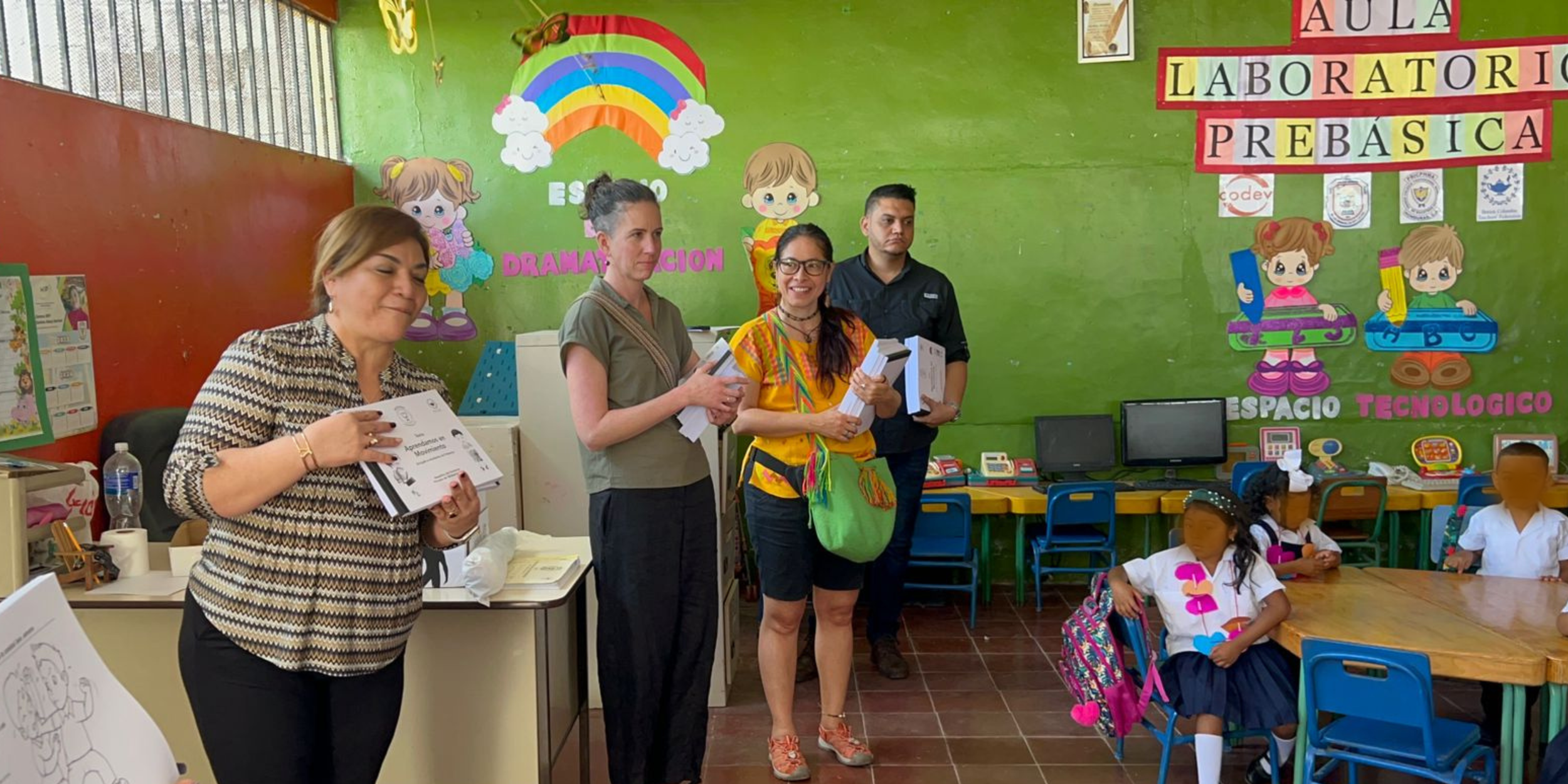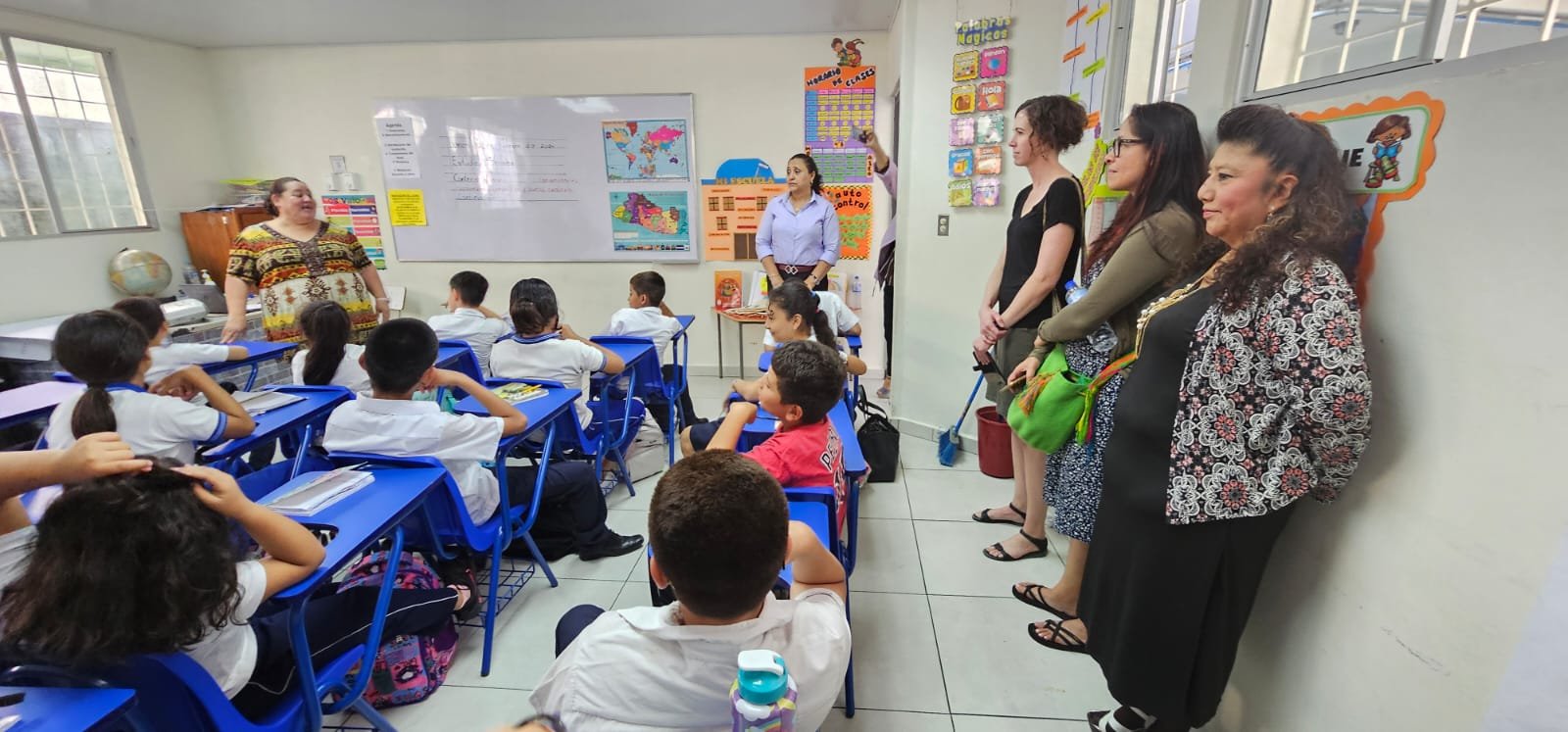BY Alexandra Henao-Castrillon
Last month, I had my first opportunity since I started at CoDev in 2018 to visit four teachers’ organizations in El Salvador and Honduras. Because the sociopolitical situation in both countries is so tense, I am choosing not to name these organizations in an effort to not cause harm to them. Three of these organizations are our existing solidarity partners, while one is a relatively new organization with which CoDev is interested in building a relationship.
For many years now, CoDev’s solidarity partner organizations in El Salvador and Honduras have been working on the Non-Sexist and Inclusive Pedagogy (NSIP) project, which is a learning and teaching process in Central American classrooms that addresses issues of gender stereotyping, sexism and exclusion in the classroom, and other areas of students’ lives. Our partners have been implementing this project with pre-school, elementary and high school students. The NSIP project includes four complementary areas: teacher training, action research, collective creation of lesson aids, and documentation of lessons.
During my visit, I came to better appreciate the context in which our partners work and the similarities and differences between these country contexts. For instance, while our partners in Honduras have received support from the Ministry of Education of a newly social democratic government, the first in Honduras’s history, to obtain the permits for teachers to participate in the NSIP project, education sector administrators in El Salvador have, by contrast, recently received a statement issued by the Ministry of Education, Science and Technology on the decisions on gender ideology, stating that the Ministry has censored the national education system and teacher training of all content related to gender ideology. The statement also warns teachers, school principals, administrators, and regional directors of education, among others, to comply with the Ministry’s decision or face sanctions, even firings.
Understandably, teachers in El Salvador fear reprisals for defying orders from a president who has become the most popular in many decades for fulfilling the electoral promise to restore order in a country with some of the highest rates of extortion and homicides in the region. Few teachers seek to publicly antagonize a president who won his re-election with 85 percent of the votes despite the Constitution not authorizing presidential re-election. Many Salvadorans whom I met expressed feeling safer leaving their homes and visiting parks, shopping malls, and other public spaces; Many have yet to publicly question the lack of public policies aimed at addressing the root causes of the previously unimaginably high rates of violence. The widespread popularity of President Bukele contrasts sharply with countless denunciations from human rights organizations of the concentration of decision-making at the top of the government, as the president now has control over the executive, judicial, and legislative branches of power in El Salvador.
This is not the first time our solidarity partners in El Salvador have faced towering challenges. Throughout CoDev’s nearly 40 years, our partners in Latin America have faced unimaginable political violence, threats, assassination attempts, oppression, and regressive educational and labour policies. CoDev will continue standing in solidarity with our partners and supporting the Central American teachers’ organizations that are waging struggles for a democratic, public education system and for collaborative processes that promote the empowerment of educational communities to find solutions to socio-political problems in the classroom and society.




